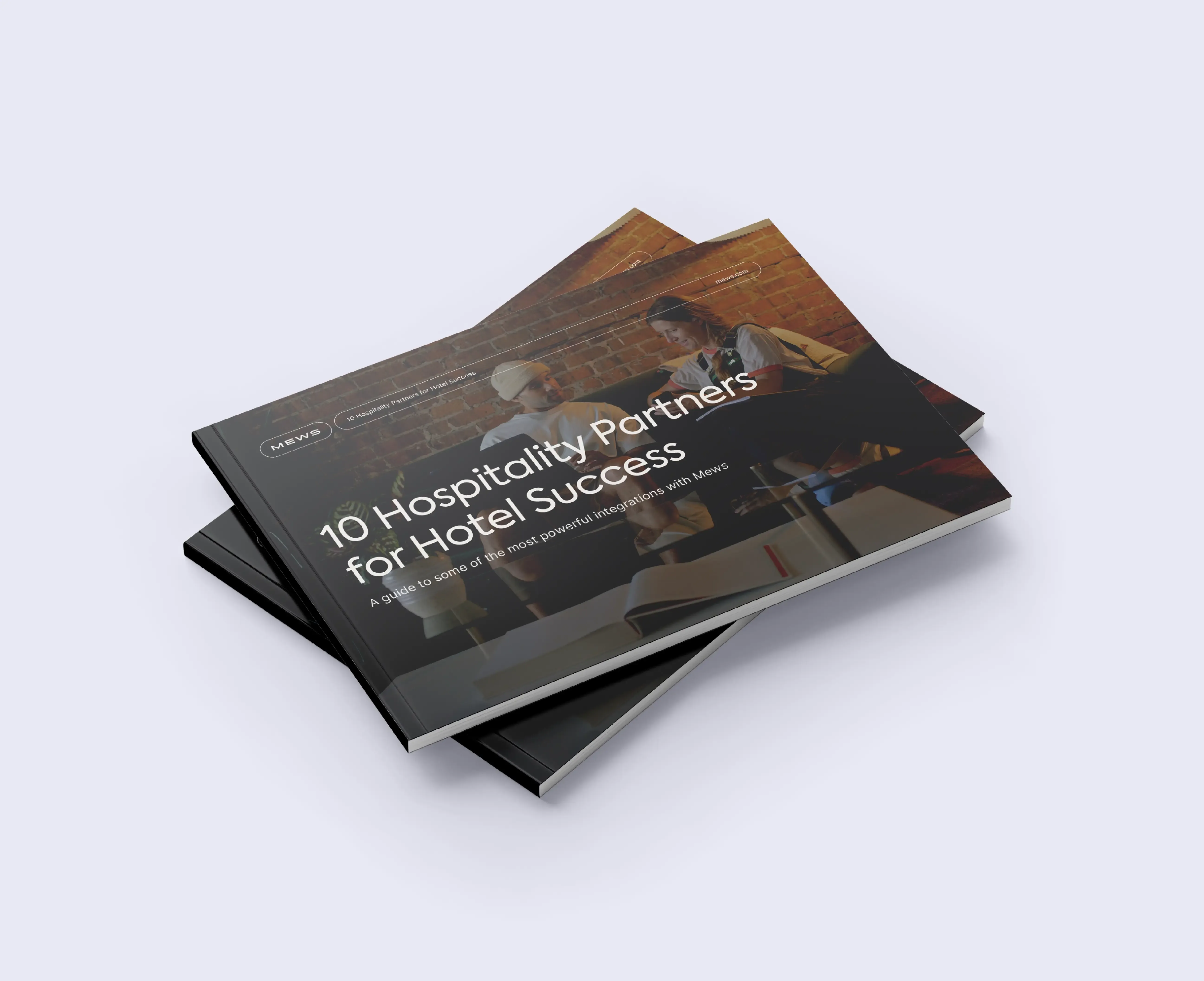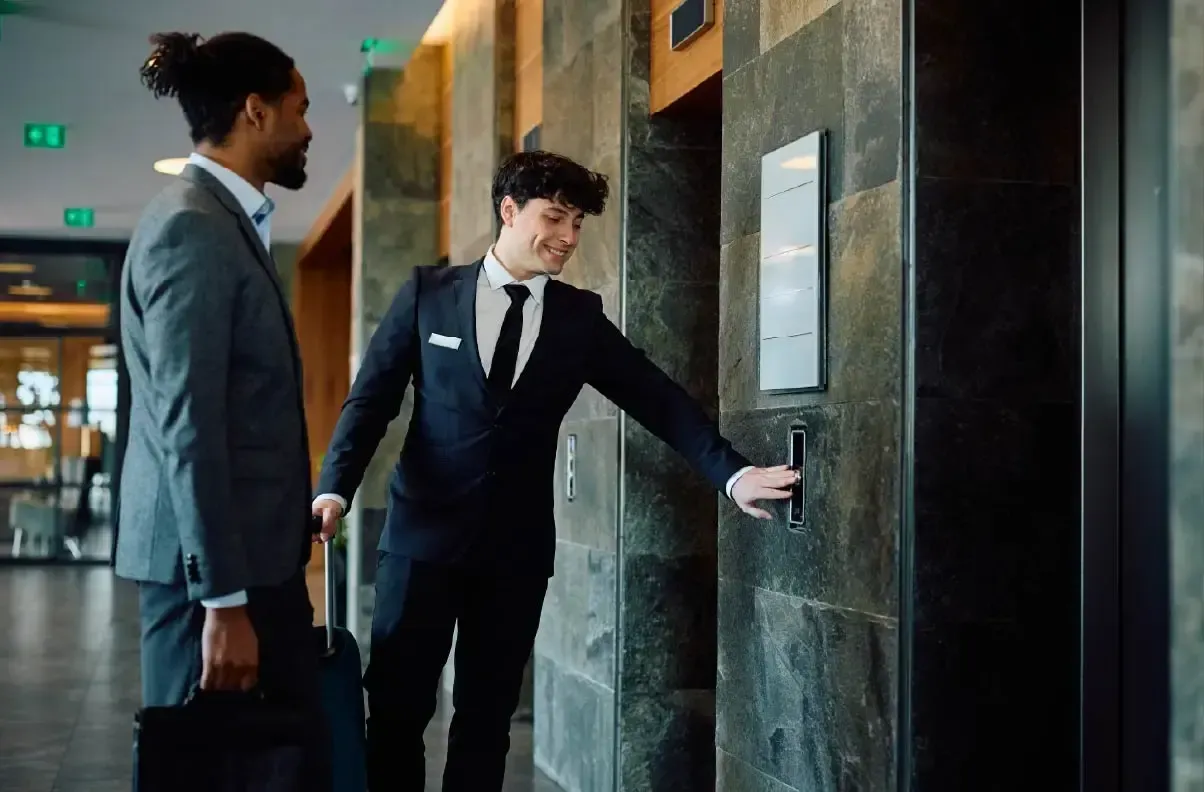Hoteliers are always on the lookout for new ways to boost their revenue, and one powerful approach is B2B (business-to-business) distribution. By connecting with other businesses, hotels can not only grow revenue but also cut costs and drive sustainable, long-term growth - all while diversifying their income streams.
In this article, we'll break down what B2B distribution means for hotels, why it's important, and the key types of B2B partnerships. We'll also explore the main differences between B2B and B2C in hospitality, and how technology can support and enhance these business relationships.
What is B2B in the hospitality industry?
B2B, or business-to-business, in the hospitality industry refers to selling products or services directly to other businesses rather than individual consumers. This approach helps hotels streamline operations, reduce costs, and expand their service offerings - all of which contribute to long-term, sustainable growth.
B2B relationships can cover a wide range of services, from group bookings and corporate agreements to facility maintenance and technology solutions. These partnerships also tend to be more profitable, as businesses are often less price-sensitive and typically book in larger volumes. For example, a travel management company (TMC) might secure dozens of rooms at once, helping hotels maintain high occupancy rates and steady pricing. This consistency, in turn, can make a hotel more appealing to individual travelers, who are often more price conscious.
B2B strategies also allow hotels to scale efficiently, supporting growth without the same level of overheads as direct-to-consumer sales. By working with travel managers, wholesalers, and tech providers, hotels can streamline their booking processes, tap into new revenue streams and build stronger business relationships.

What is the difference between B2B and B2C in hospitality?
As mentioned, B2B involves selling to other businesses, like corporate clients, tour operators, or OTAs (online travel agencies), while B2C (business-to-consumer) focuses on individual guests. The strategies for attracting these two types of customers are quite different.
For B2B, the focus is on building long-term partnerships and offering competitive rates to secure ongoing business. These relationships often rely on negotiated contracts and high-volume bookings. B2C, on the other hand, is about creating personalized experiences that drive direct bookings, upsells, and repeat visits from loyal guests.
You'll also find that sales channels can differ. B2B transactions often go through platforms like GDS (Global Distribution Systems), TMCs, wholesalers, and corporate booking platforms. B2C sales, meanwhile, rely more on direct bookings, OTAs, social media, and, of course, your hotel's website.
Why are B2B distribution partnerships important for hotels?
B2B distribution partnerships are key for hotels looking to drive cost savings, efficiency, and revenue growth.
Revenue growth
B2B distribution helps hotels reach a broader audience by connecting with various distribution channels, from travel agencies to corporate clients. This broader reach translates into more bookings, higher occupancy rates, and ultimately, increased revenue.
Cost savings
While some B2B channels involve upfront costs, like connecting to a GDS, these investments can pay off by reducing reliance on costly direct marketing. For example, OTAs and travel agencies often have large marketing budgets that hotels can leverage to reach new customers without significant advertising spend.
Efficiency
Automating reservations through B2B platforms can also help streamline operations. For instance, a GDS can handle bookings automatically, reducing the need for manual processing and allowing hotel staff to focus on guest experience and other high-value tasks. By connecting these different distribution systems directly with your property management system, you can process more reservations without adding to your team's workload.

Key types of B2B relationships in the hotel industry
Some of the most important B2B partnerships for hotels include:
- Travel agencies and OTAs: These partners help hotels reach a global audience and secure high-volume bookings.
- Corporate clients and TMCs: These partners provide steady business through negotiated rates and repeat bookings.
- Suppliers and wholesalers: These companies purchase rooms in bulk and distribute them to other businesses, helping hotels reach new markets.
- Technology providers: Hotel management software with open APIs, built-in distribution capabilities, and GDS connectivity can help you manage and distribute inventory across multiple channels, driving both efficiency and profitability.
How technology enhances hotel B2B operations
Technology plays a critical role in enhancing B2B operations by automating tasks, improving communication, and providing data-driven insights. Automated booking systems reduce manual work, while integrated platforms allow hotels to manage multiple distribution channels from a single dashboard.
By adopting the right tech solutions, hotels can increase efficiency, reduce costs, and make smarter business decisions based on real-time data.
How Mews supports hotel B2B partnerships
Mews simplifies B2B relationship management for hotels, offering automated workflows, flexible open APIs, and centralized operations. This makes it easier to handle group bookings, share insights, and collaborate effectively with partners - all while supporting long-term growth.
Conclusion
B2B distribution isn't just a strategy - it's a smart way for hotels to stay competitive in a fast-changing industry. By building strong partnerships with travel agents, corporate clients, and tech providers, hotels can tap into new revenue streams, streamline operations, and deliver more value to their guests.
Want to streamline B2B operations with the right integrations?
Download our guide "10 Hospitality Partners for Hotel Success"

Written by

Jessica Freedman
Jessica is a trained journalist with over a decade of international experience in content and digital marketing in the tourism sector. Outside of work she enjoys pursuing her passions: food, travel, nature and yoga.










